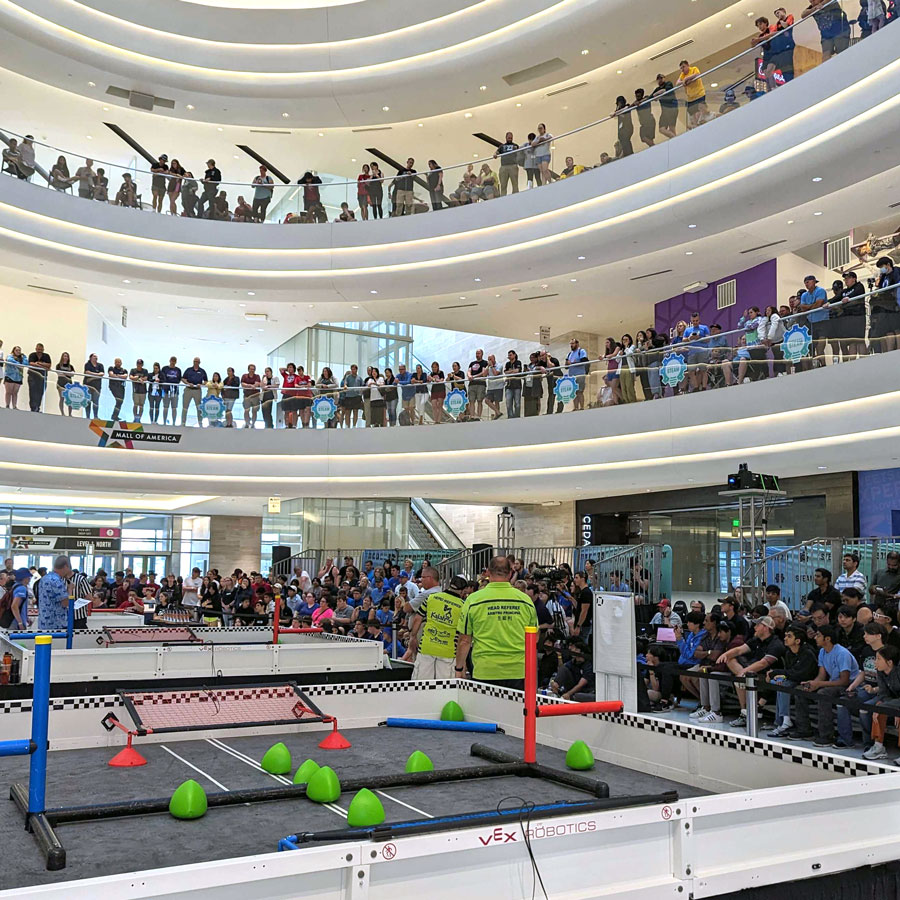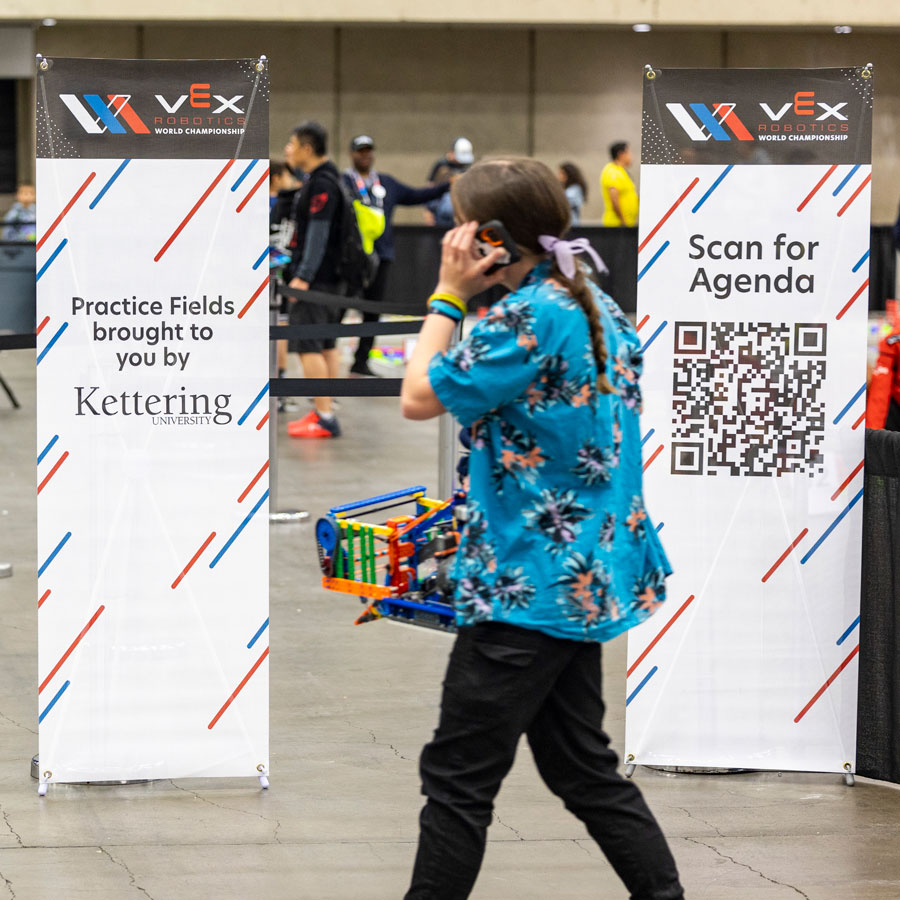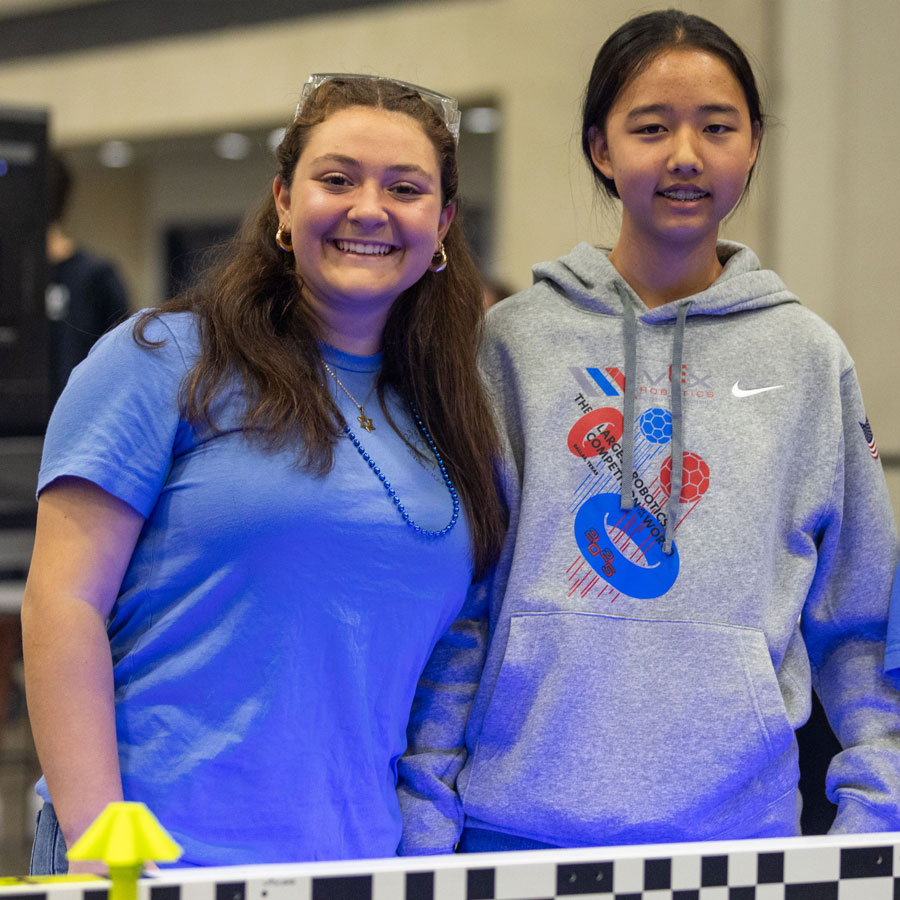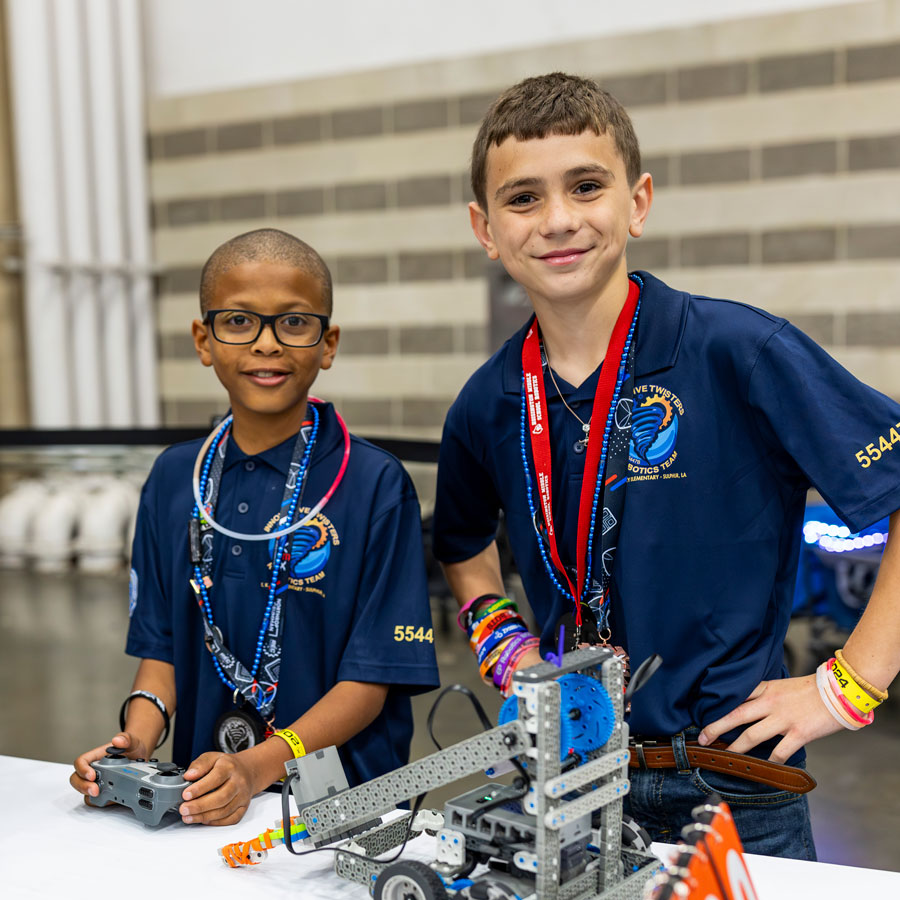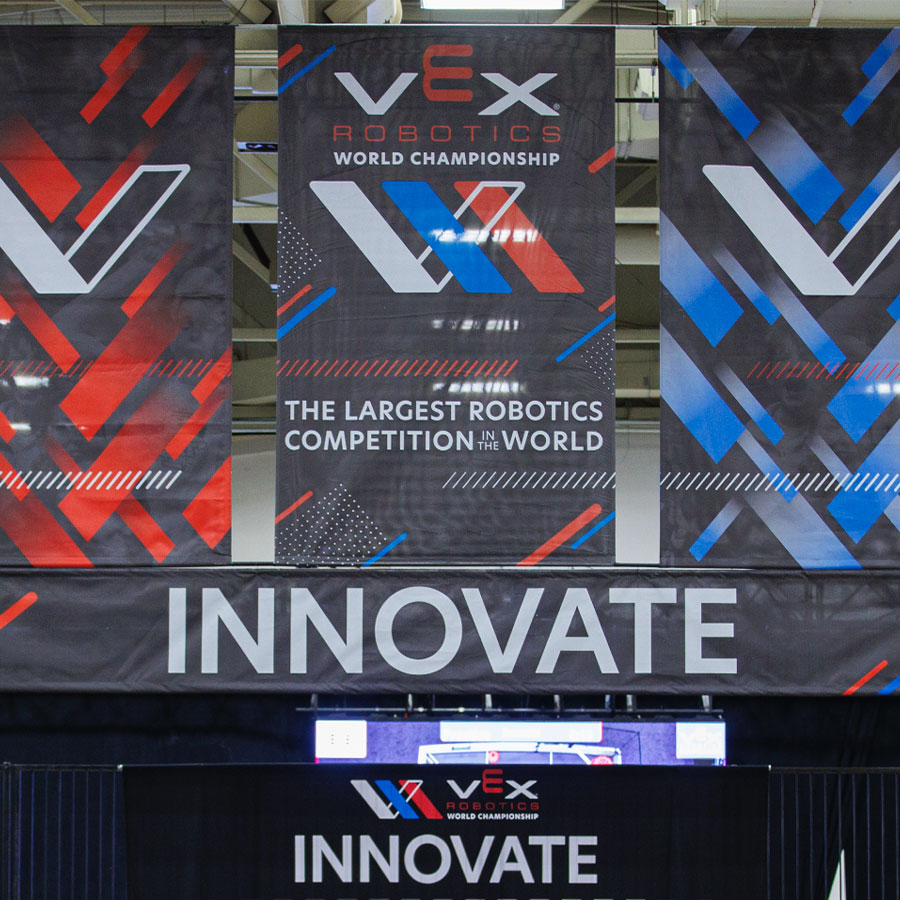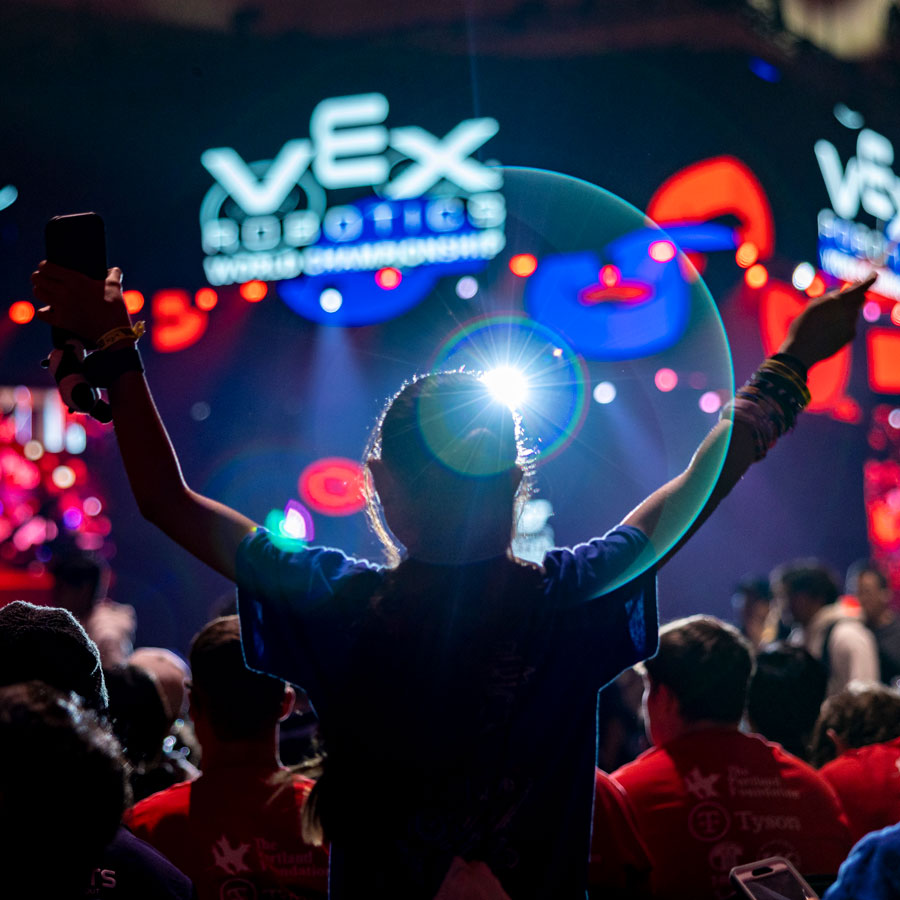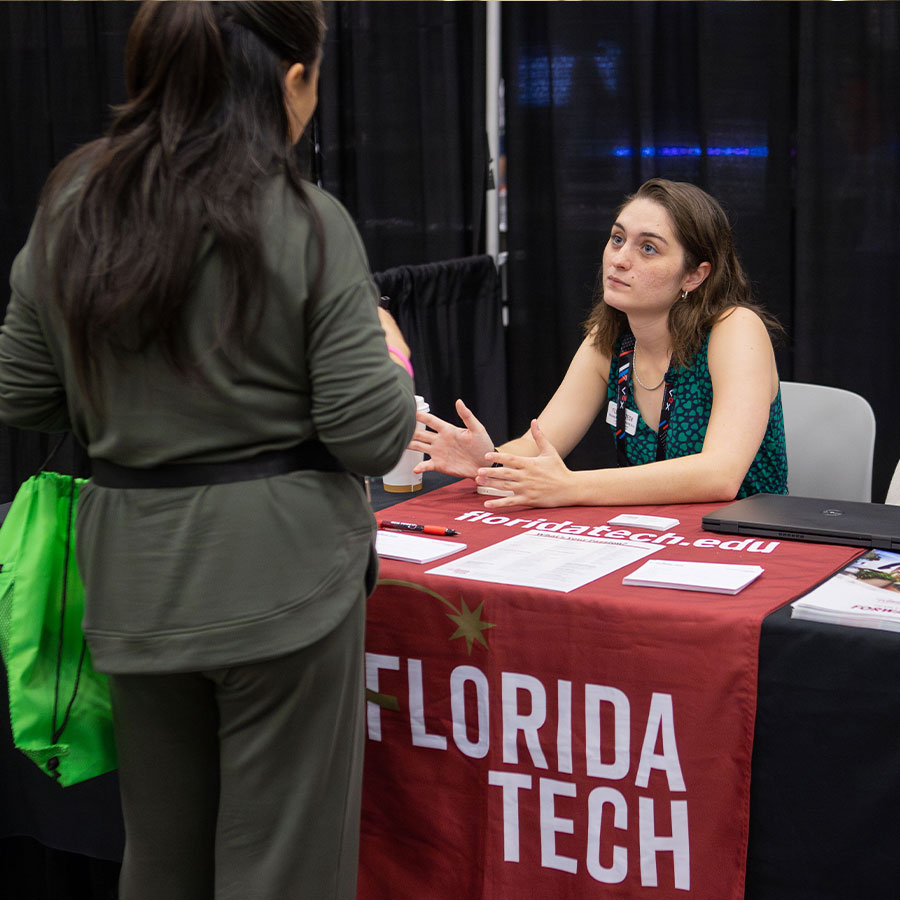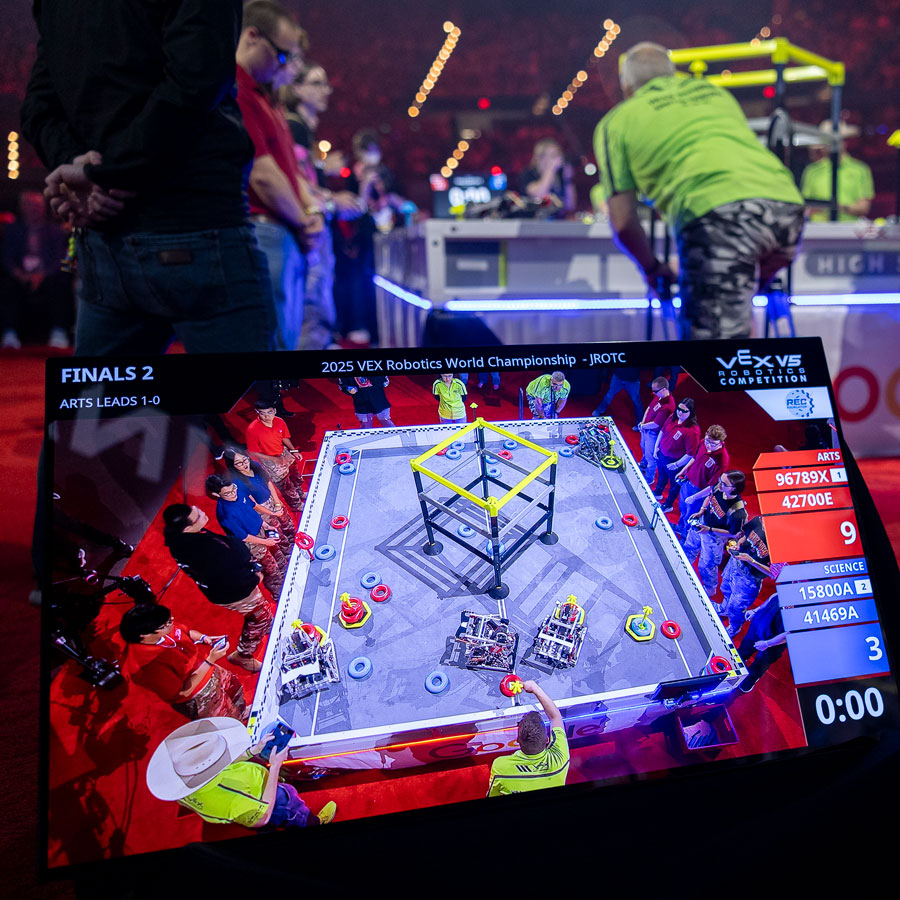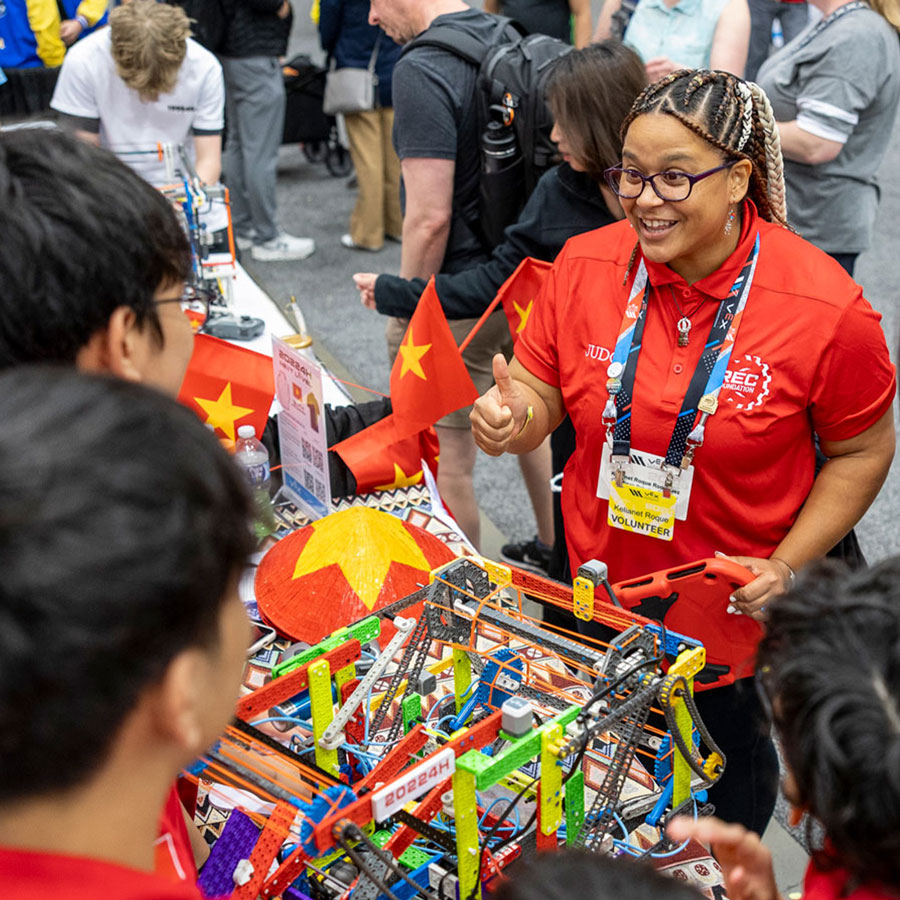
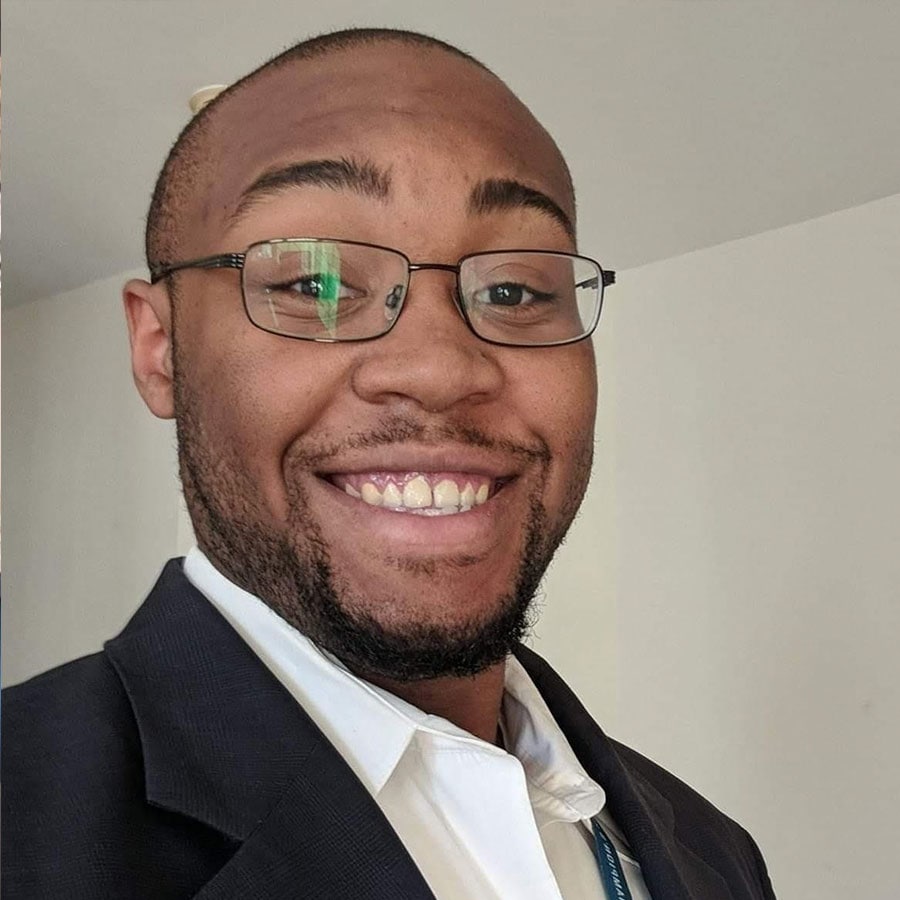
At the Robotics Education and Competition Foundation (RECF) we are so lucky to have thousands of volunteers who tirelessly devote countless hours to making sure that events run smoothly. One of those individuals is Oscar McCullough, who has served as an Event Partner (EP) for over eight seasons. An alumnus of RECF programs, Oscar can now be found field side calling VEX Robotics Competition (V5RC) matches as an MC or using his decade of robotics experience to engineer the most exciting events possible. We spoke with Oscar about why volunteerism is important, how robotics prepared him for his current career, and why he believes the VEX U program is special.
Tell us a little about yourself.
OSCAR: My name is Oscar McCullough. I’m from Virginia and I’ve been an EP for eight seasons. I’m also a VEX Robotics Competition alumnus, but I started my involvement with the organization prior to V5RC even being a thing. I continued to do robotics in high school, and then in college with VEX U. I’ve been involved ever since. At this point I’ve spent more than half my life involved with VEX Robotics in competitions.
You mentioned that the program was life changing for you. Can you tell us a little bit more about that?
OSCAR: So growing up I always knew I loved math and science. I also knew I wanted to be an engineer. I played sports growing up, and was always super competitive with everything. That said, I wasn’t a great athlete. So in eighth grade my school started a robotics team and I was like, “This sounds fun, let’s do it”. And there was a moment where things just really clicked for me. I knew what I was doing, and realized “Hey, I could be really good at this”. After that I really took to programming and building robots – that’s the reason I picked the high school I went to, because there were only three high schools with a robotics program.

That’s incredible. It seems like robotics was a natural fit for you. Did you have any experience with it prior to eighth grade?
OSCAR: I knew nothing about robots before I started. I knew I liked robots. I knew robotics was something I wanted to get into, but I was at ground zero. I liked math and science and programming and that was it. But I didn’t have any other background knowledge or anything. I was a failed eighth grade athlete that knew I wasn’t going pro in sports, but I could go pro in math and science. So I went in not knowing anything but just willing to learn so much. That’s what I did for robotics.
Really, just being able to find something that I genuinely love and that brought me a sense of satisfaction, sense of growth, and the chance to always learn new things and reach new heights was absolutely mind blowing for me. Robotics changed my whole outlook on how I approach school, how I approach work, and things I want to do. Robotics was transformative for me.
You mentioned transitioning to VEX U once you got to college. Were the additional freedoms that the VEX U provides liberating in any way as someone who always wanted to push themselves in robotics?
Definitely. VEX U has actually changed so much from when I started in 2013 or 2014. I would say, at the time, VEX U had the feeling of being just larger high school V5RC bots, with the addition of being allowed to use 3D printed parts. Eventually we were also allowed to use more sensors and that change actually was really encouraging. When I started VEX a decade ago, I was kind of limited with the programming I could do and sort of the software approaches I could take. I competed in the pre-V5 era. I used PIC processors, then the Cortex right when it came out. I actually used the Cortex for most of my competition career.
Once I became a mentor, we got V5, and there was just so much freedom in VEX U to really learn and apply new techniques, and try all the different algorithms and math and things that I really loved in my classes. I got to introduce many of those ideas with VEX U. A lot of it was just trying things and being ok with failing at times. That’s still a key aspect of VEX U today. So I’m glad I had my VEX U experience. It made me a much better VEX robotics person in both building and programming, and it pushed me to want to give that experience back to everyone.
And now you continue to give back as an Event Partner. What is the most rewarding part about being an EP?
OSCAR: It’s having the students come up to me and say, “Hey, you ran a great event” or knowing that some of their best experiences in robotics are the events you run. That’s the main reason I became an EP because I had great experiences in robotics and our events didn’t have any of the things like events have now, but I just had fun being around robots and I wanted to do everything I could to elevate that feeling for others at my events.
That’s why I might volunteer to run the state championship or I’ll run as many events as I can in the season, because every event is someone’s first or someone’s introduction to robotics. I’m driven to make sure that everyone has a positive experience – from the students, to the volunteers, to the spectators, because I want them to understand the magic of this program.

So as an Event Partner, what piece of advice would you give to somebody that wanted to become an EP?
OSCAR: You never have to go at it alone and you never have to put everything on yourself to succeed. I’ve found that in my time as an EP that there are so many people willing to help out and willing to contribute in any way they can because they also have that same desire to put on the best event possible. You want to provide a positive experience for the students, and most people understand that goal and understand the mission and vibe with it.
That’s something that I wish I took more note of when I started being an EP because a lot of times you put a lot on yourself because you trust yourself to get everything done. Again, it is a collaborative effort, it’s a community effort, and that’s really the biggest advice I give any EP – you’re not in a silo, you’re not alone. You have to rely on your community to really get the best results for yourself and everyone involved in the process.
Speaking of mission based initiatives, as you know workforce development and preparing students for STEM jobs in the future is at the core of RECF programming. Can you just talk a little bit about how your experience prepared you for what you do now in the “real world”?
OSCAR: Absolutely. I’m a software engineer in my day job. Some things, like the coding and building robots…some of those technical skills did apply to my job, but I think the most important thing for me, and really what these programs provide students workforce development-wise is being able to understand the process, being able to understand how to plan a project, how to approach the work you do, because those are the most valuable skills you learn. Maybe you can build a flywheel, you can build a really nice drive train, but as you go through college, you’ll learn those things. But those aren’t the real skills you’re learning through RECF programs. Again, the beauty of these programs are the soft skills you’re learning, those workforce development skills – how to operate in a STEM workplace.
Those are the most important skills that I take and apply every day to my job. Being able to take a task, break it down into separate parts and go through a process to either write a new feature or build a new product and to be able to support that product throughout its entire life cycle and just make iterative changes throughout – those things are more important skills to master -more so than just the competitions. Those are absolutely the biggest lessons that I got from my participation in VEX, not only as a student but as an EP as well, and I believe those lessons are the ones we need to pass on to students today.
